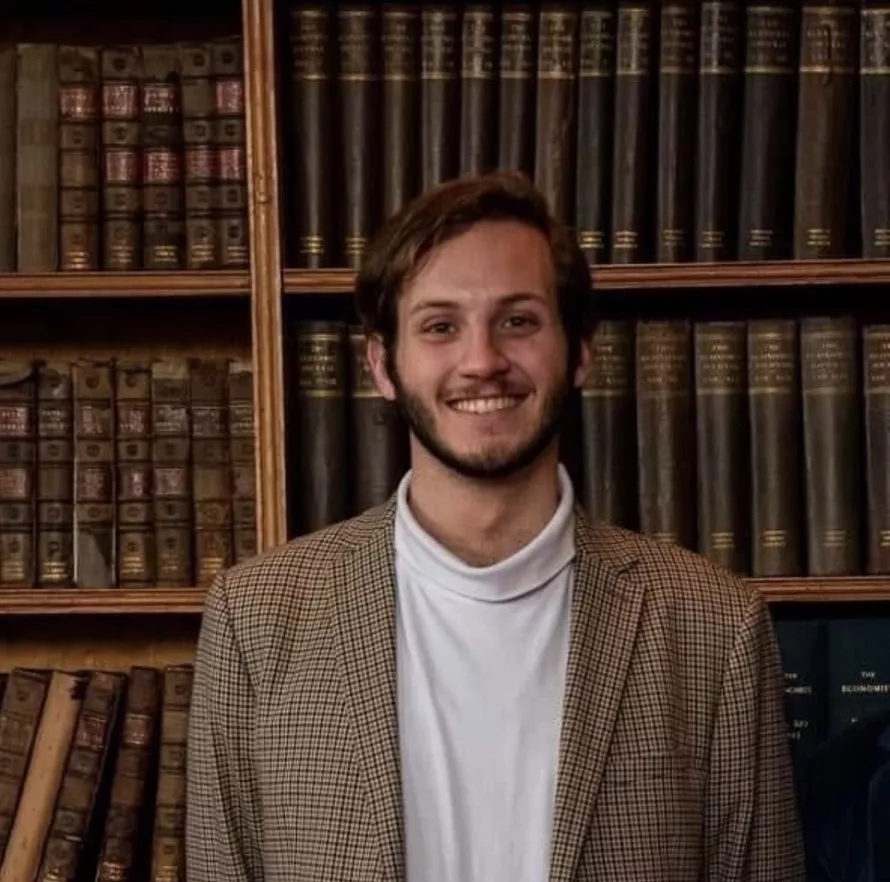With Oxford Union elections right around the corner, Cherwell decided to sit down with the two candidates hoping to become Union President in Trinity 2024. They discussed their qualifications, reasons for running, and exciting visions for the Union’s future.
Julia Maranhao-Wong

Briefly introduce yourself. Who are you? Which college are you at and what do you study?
I’m Julia Maranhao-Wong, St. Anne’s College, second-year PPE.
Why are you running for president?
A fun fact about me is that pretty much since week two of Michaelmas I’ve always kind of been running an election – it’s always been a really really massive part of my time in Oxford. And I guess I made a lot of my really really close friends there and that was why I originally started.
When I actually joined, I got really interested in the committee side. And then I realised – some people across the University have a massive issue with the Union. And I was so confused! I realised that obviously a lot of them take issue with the controversial speakers we host – so I want to emphasise that the Union’s not trying to platform people like Kathleen Stock for instance, or any kind of extremely conservative or liberal politicians. The whole point is to bring them in to challenge them.
You can find celebrity and politician interviews on YouTube or anywhere, right? If I wanted to see someone chat with like Tucker Carlson, I can find them on YouTube. But the whole point is that people are actually supposed to be able to get new things out of them and I really want to sort of recenter on that.
If you could highlight two points in your manifesto, what would they be?
I’m the only candidate that actually fulfilled any pledges made at Trinity. I filled every single pledge that I made internally. That’s probably my biggest thing. I think that when you want to take a position, responsibility and organisation is really important for your work. I think that’s what makes me very, very different from any candidate is that I’m the only one to have done that. I also believe in under-promising and over-performing. I pledged three socials and then I was responsible for eight. I’ve also worked more vacation days.
And then one programme I’m really really passionate about is Union scholarships. I think that there is a real possibility of getting funding for a living scholarship program, which would give away membership to somebody who was interested and qualified. The other thing that I think I want to focus more on is grant applications, because I think one of the biggest issues seen in accessibility is just the price like it is. And the way that we make that better is by doing better fundraising on committee.
What issues do you think face the Union in the future? How would you try to fix them?
I do think committee culture matters a lot to me. And this isn’t to necessarily say that we have a bad committee culture, because I quite like committee culture as it is. But I want to make it something that works for everyone because I think that when a committee has a really good vibe going, that expands membership.
So one of the things that I was actually very, very passionate about is mandated welfare reporting for officers. I’ve been very lucky in that I’ve always felt very, very comfortable in the Union. But I think that it’s really important that we do have mechanisms in place where people actually know who to go to. And I think it’s important that specifically the officers take more responsibility for that.
You’re American. How do you feel about potentially leading a historic British institution?
I’m somebody who probably traditionally should have felt on the outside [of the Union]. My mom is half Brazilian and half French, and my dad is Chinese. So I’m Latino-Asian. And I’m also not from this country. And I’m a woman.
And I think it’s one of those things where, yes, they will absolutely make jokes about me being American. And I do think that sometimes I do feel like I have to work a little bit harder to show that I’m competent. I feel like you see that in my manifesto: I’m like, I swear I’m competent, guys, I’ve done it all. And I have been lucky to have some very, very British people backing me!
How do you feel about the limited competition in Union elections?
I mean I’m very very happy to be contested. I do think that I am the most competent candidate. But I would say that I’m definitely happy that people have a choice [this time]. I think you get better at every level when it’s contested.
If you could invite three speakers, who would they be?
- Kendrick Lamar or A$AP Rocky. One of the two
- Taylor Swift – she’ll be on tour in the U.K. in Trinity
- Kamala Harris
What’s one particular debate you’d like to see?
Something on gender self-identification in the Olympics, because we have this summer 2024 Olympics coming. And I also think something on Taiwan would be really very relevant because a lot of people are wondering how far the West is going to be willing to go to defend Taiwan.
How are you feeling about the election?
Have you ever been in a locker room before the game? It’s very much that kind of energy. Everyone’s getting really really excited.
Anything else to add?
Can I give you my slogan? Challenge ideas, challenge speakers, challenge the status quo.
Leo Buckley

Briefly introduce yourself. Who are you? Which college are you at and what do you study?
I’m Leo Buckley, Trinity College, third-year history.
Why are you running for president?
I think I’m the best person for the job. I love the Union. It’s where I spend far too much of my time. I’ve been part of it for seven terms. I’ve been on committee for four terms. I’ve been on the governing body for two terms. I know the best parts about it. And I know the areas that I think it could improve. And I think I’m well placed to do that.
If you could highlight two points in your manifesto, what would they be?
I think that the professional experience that I have is really worth highlighting. I’ve scrutinised multi-million-pound budgets before as a member of the governing body of my sixth form. I’ve also worked as a documentary producer and director of a consultancy, which gives me a lot of experience outside of purely the Union committee meetings. I think that professional experience is pretty unique and I think that’s definitely worth highlighting. It gives me a way of understanding how finances work that you wouldn’t necessarily get if you came into the Union straight out of high school or only served on a couple of committees.
The second part I’d highlight are the pledges. The President is in a pretty unique position where they are the only person that can make very senior-level decisions and that’s why rather than pledging a debate, or a particular event, I’ve focused my pledges on changes only presidents can make. For example, opening on Sundays or opening until 2 am, which we have a licence to do, are senior decisions that only the President has the ability to do.
What issues do you think face the Union in the future? How would you try to fix them?
The Union has faced a couple of problems in terms of governance and finances. I think we are well on the way to fixing those with a governance review process, finding more trustees and raising money to fix the roof which we are well on the way to do. As President, I would continue to be a steady hand on the tiller for both of these processes.
I think there’s also a slight image from the Union where people see it as just a place where you go to see interesting or controversial speakers, and that’s why a lot of my manifesto is focused around highlighting the social aspects of the Union as a place to study or as a place to see friends and drink late into the night.
Why do you think the Union has been having uncompetitive elections for two terms in a row?
Well, I think there are a lot of reasons – sometimes it can be because candidates are very competent and very good. A couple of decades ago, there was a nearly ten-year-long period where there were uncontested elections term after term after term, which was widely considered a pretty bad time in the Union’s governance.
I think that sometimes as well, people can consolidate behind a candidate that gets a lot of momentum and then people don’t necessarily feel like they can engage against that sort of monolith. Ultimately, it’s a sensitive matter as well; I don’t think a prospective presidential candidate is the right person to give you the right answer.
Is there a reason that you’re running independently? Do you think that puts you at a disadvantage electorally?
Of course, I mean, the Secretary from St Anne’s College has got a really impressive team. She has Chris Collins, the top elected member of the standing committee who is also our RO, as her secretary. He’s an incredible figure. She’s got a terrific team of some really compelling standing candidates, like Robert McGlone and her seccies. So of course, I’m up against that.
But at the same time, I think that people respond well to choice and democracy, if you remember last term over a third of votes were for reopening nominations, which I think speaks to a discontent of not being able to have a choice. The electorate doesn’t like that. Plus I’m a pretty well-liked candidate electorally, I’ve got quite a reputation for running independently. I’ve done very well for that being one of the top elected seccies and standing members.
I think that for a long time, the Union didn’t have slates, and I probably think the Union shouldn’t have slates. And so you can say disadvantage, you can say, underdog. That’s my preferred way of phrasing it, everyone loves an underdog.
Julia said that she’s the only presidential candidate to fulfil any pledges over this term. What do you make of that claim?
I believe it to be false. In fact, I believe quite a few of her unscrutinised pledges might be false, but that’s for the RO’s to decide and not me. I believe myself to have fulfilled pledges in the past, which would render that statement false.
If you could invite three speakers, who would they be?
- Martin Scorsese
- Tony Blair
- Jeremy Irons
What’s one particular debate you’d like to see?
Easy question. Brexit. Was Brexit a good idea, was it not? I think specifically it would be: “This house regrets leaving the European Union.” See my lock screen is the EU flag, if that gives you any indication of where I’d be on that one.
Anything else you’d like to say?
In my manifesto, I say that elections are about choice. I don’t think democracy can properly function at work without people having a real choice. So all I can say is that I hope that people come out to vote on Friday. Doesn’t matter who you vote for. But please engage. The Union can have some rough spots, but also, it can be one of the most amazing and impressive places. It’s 200 years old and it’s brought me such joy. I think people should contribute in the way that they can on Friday and play a part in that history. Vote Buckley.
Voting will happen tomorrow, on the 24 November, from 9:30 to 20:30.


